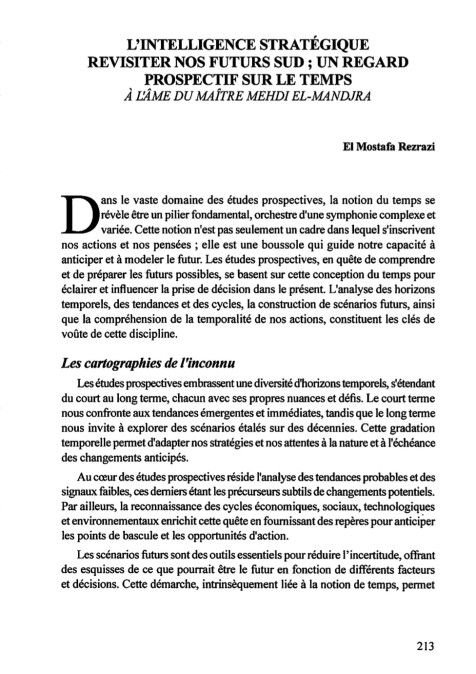Publications /
Policy Brief
Dans le vaste domaine des études prospectives, la notion du temps se révèle être un pilier fondamental, orchestre d'une symphonie complexe et variée. Cette notion n'est pas seulement un cadre dans lequel s'inscrivent nos actions et nos pensées; elle est une boussole qui guide notre capacité à anticiper et à modeler le futur. Les études prospectives, en quête de comprendre et de préparer les futurs possibles, se basent sur cette conception du temps pour éclairer et influencer la prise de décision dans le présent. L'analyse des horizons temporels, des tendances et des cycles, la construction de scénarios futurs, ainsi que la compréhension de la temporalité de nos actions, constituent les clés de voûte de cette discipline.







